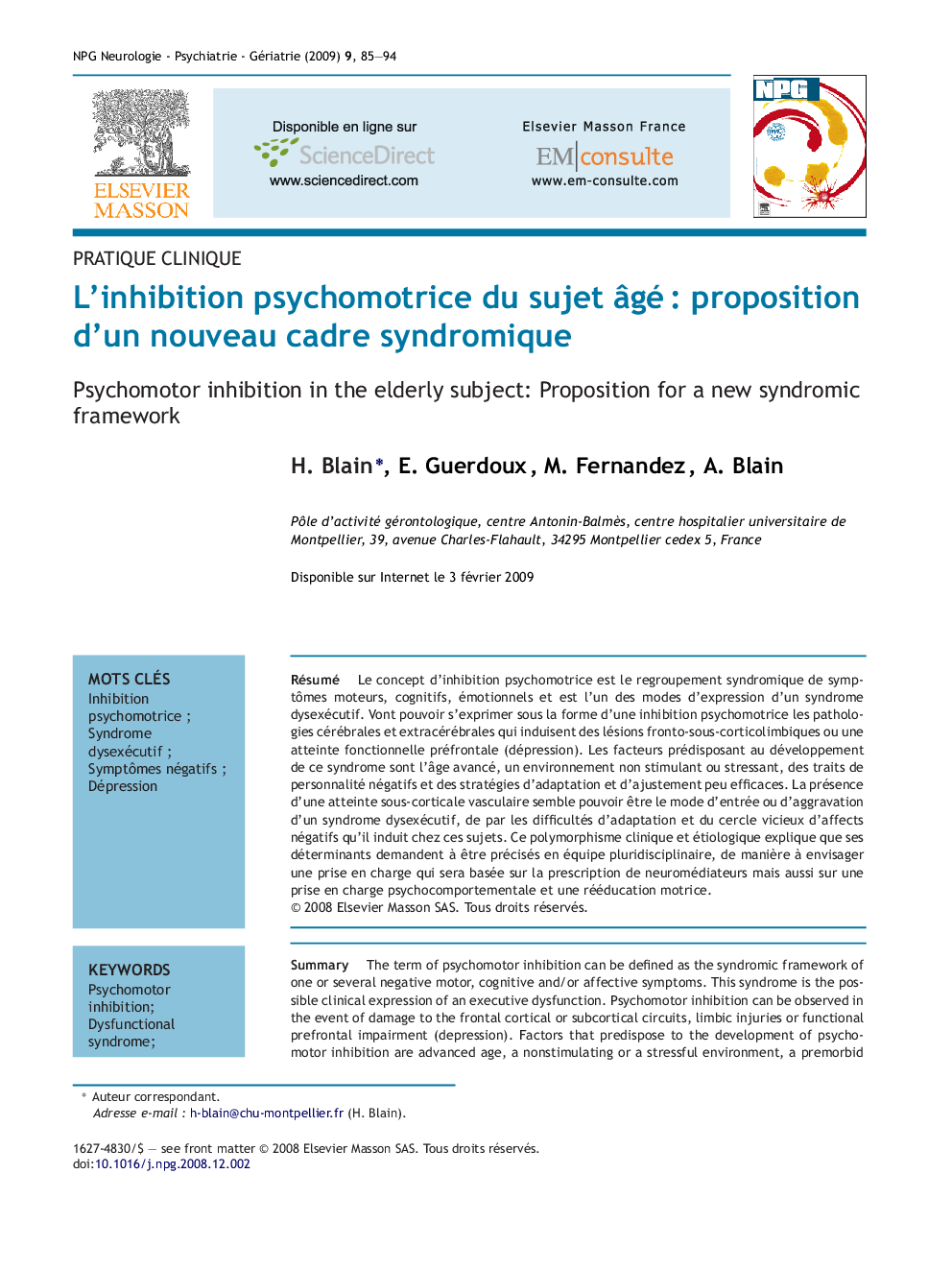| Article ID | Journal | Published Year | Pages | File Type |
|---|---|---|---|---|
| 3326505 | NPG Neurologie - Psychiatrie - Gériatrie | 2009 | 10 Pages |
Abstract
The term of psychomotor inhibition can be defined as the syndromic framework of one or several negative motor, cognitive and/or affective symptoms. This syndrome is the possible clinical expression of an executive dysfunction. Psychomotor inhibition can be observed in the event of damage to the frontal cortical or subcortical circuits, limbic injuries or functional prefrontal impairment (depression). Factors that predispose to the development of psychomotor inhibition are advanced age, a nonstimulating or a stressful environment, a premorbid neuroticism and the ineffectiveness of adaptation and adjustment strategies. Because of the vicious circle of difficulties in adaptation and negative thought that characterize this syndrome, vascular subcortical injuries may be one of the most important risk factors for psychomotor inhibition and may worsen psychomotor inhibition due to other conditions. This clinical and causal polymorphism explains why its determinants must be explored in a pluridisciplinary way and why management must include neurochemical drugs but also behavioral and physical rehabilitative treatments.
Keywords
Related Topics
Health Sciences
Medicine and Dentistry
Geriatrics and Gerontology
Authors
H. Blain, E. Guerdoux, M. Fernandez, A. Blain,
